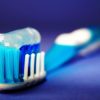Dental health is an essential aspect of overall well-being. Proper dental hygiene can prevent tooth decay and gum disease and keep your smile looking bright and beautiful. However, many struggle with maintaining good dental health due to poor knowledge or bad habits.
That is why you should know and follow the best practices for dental health. What are those? Let’s dive in and discover.
1.Stop Smoking
Smoking can wreak havoc on our dental health in numerous ways. Firstly, it restricts blood flow to the mouth. That way, it compromises the body’s ability to fight off infections. Furthermore, smoking weakens the immune system, lengthening healing times after oral surgery and other procedures.
If you have braces, staying away from smoking is even more critical. Experts in oral health warn that smoking can adversely affect the success of orthodontic treatments. The high nicotine content in tobacco can cause unsightly stains on braces, particularly on clear aligners. Smoking might even impede the braces from properly aligning teeth in more severe cases.
However, if you are considering braces, ask your dentist about the effects of smoking for more clarification. Finding a qualified resource shouldn’t be difficult if you live in Tennessee. Why? Because according to a stat by the Tennessee Commission on Children and Youth, there are more than 2,800 dentists here.
You can even get top-notch treatment in your local area if you’re settled in Cookeville. Look up braces in Cookeville, TN, to find a reliable resource near you today and book an appointment.
2.Drink Plenty Of Water
You are probably already aware that water results in several benefits. It gives your skin a healthy glow and provides essential nutrients to your body while flushing out waste. But did you know that drinking water is also one of the best things you can do for your teeth?
Our mouths naturally produce saliva. It is our first defense against harmful bacteria and tooth decay. A lack of saliva production may lead to dry mouth and the loss of this protective layer. Guess what? Drinking plenty of water means you will stay on top of saliva production.
Water could also help prevent bad breath. When our mouth is dry, bacteria will accumulate more quickly. Drinking water throughout the day helps to keep our mouth moist and less hospitable to bacteria, resulting in fresher breath.
One of the best ways to increase your water intake is to always keep a water bottle with you. Whether at work, home, or out and about, having a water bottle within reach will encourage you to take sips at regular intervals.
If plain water is boring, try infusing it with fruits or herbs. Adding sliced lemon, cucumber, or mint can make your water taste more refreshing and appealing.
3.Brush Twice A Day
Brushing your teeth twice daily is essential to maintaining good oral health. It removes plaque, food particles, and bacteria that can cause tooth decay and gum disease. According to health experts, brushing your teeth twice daily reduces your risk of developing cavities and gum disease by up to 25%.
But here is the thing: cookie-cutter brushing will not do the trick. You must follow some guidelines to ensure you are doing it right. For starters, use soft-bristled brushes and change them every three months.
American Dental Association reveals that most people brush for an average of 45 seconds. For best results, you must brush for at least 2-3 minutes.
The technique is equally important. Many people brush their teeth up and down or back and forth, which is a flawed approach. Use gentle, circular motions to clean all surfaces of your teeth. Also, do not forget to clean your tongue and gums; these areas are notorious for harboring the bacteria that lead to bad breath.
4.Floss Daily
While brushing removes plaque and bacteria from the surfaces of your teeth, it cannot reach the tight spaces between them. That is where floss comes in to save the day! Flossing will keep tooth decay, gum disease, and tooth loss at a safe distance.
Studies have even shown a link between gum disease and other systemic diseases, such as diabetes, heart disease, and stroke. By flossing regularly, you can reduce your risk of developing these diseases and maintain your overall health.
Now, let’s talk about the right way to floss. First, take a length of floss (roughly 18 inches) and wrap it around your middle fingers, leaving a couple of inches of floss between them. Next, use your thumbs and forefingers to guide the floss between your teeth, gently rubbing it up and down against each tooth and along the gum line.
Do not forget to also floss behind your back teeth and along the gum line of your front teeth. If you have trouble reaching certain areas, use a floss holder or interdental cleaner to make the process easier.
5.Pay Attention To Your Diet
Dentists recommend eating apples regularly because chewing them cleans teeth and reduces the risk of cavities. And if you are a fan of crunchier veggies like carrots and celery, you are in luck! These, too, can help stimulate your gums and fight off cavities.
A nutritious diet with fruits, vegetables, grains, and lean proteins like organic chicken and fish can work wonders for your pearly whites.
We know what you are thinking – “how do I add all of these healthy foods into my routine without sacrificing taste and fun?” Well, it is all about getting creative! Mix fruits and veggies into smoothies or soups, swap out refined grains for whole grains in your favorite dishes, and snack on nuts and seeds for a tasty and healthy treat.
Don’t be afraid to experiment with new recipes and flavors.
Conclusion
Maintaining healthy teeth is not just a one-time thing; it is a daily commitment that requires proper care and attention. Even if you were blessed with perfect teeth from birth, bad oral hygiene can cause cavities, gum disease, and eventual tooth loss.
Thus, you must take the measures covered in this blog to ensure your pearly whites stay healthy and strong in the long run.







